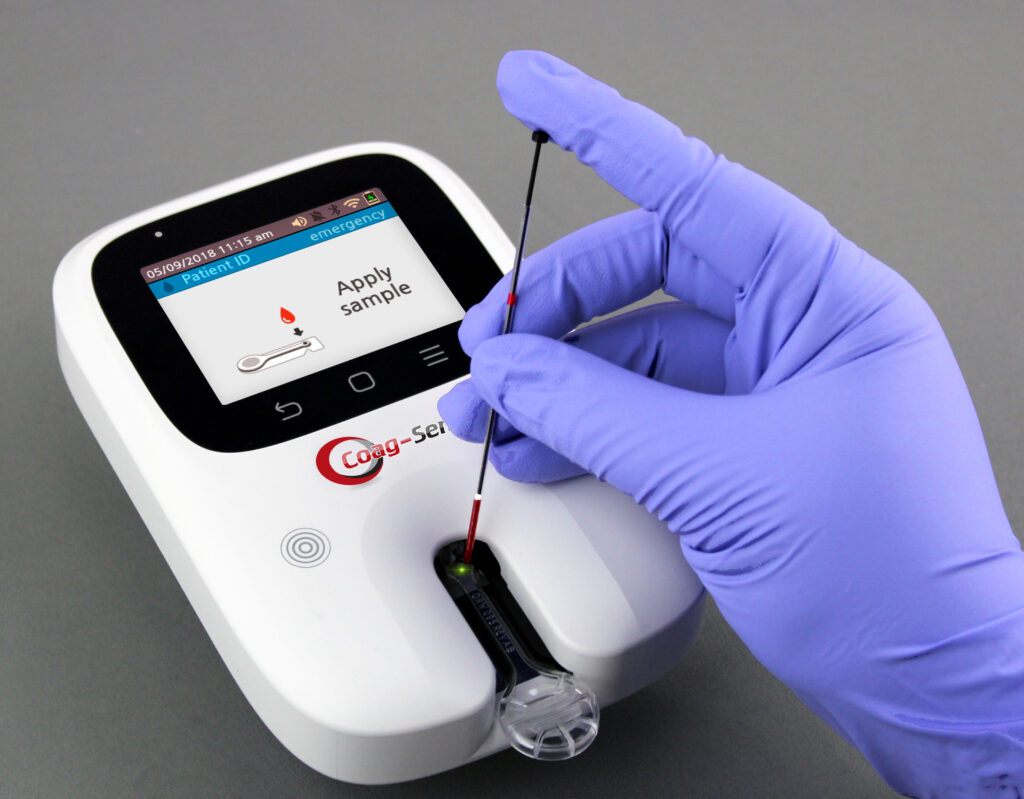Living with long-term anticoagulation therapy—especially with warfarin—requires consistent monitoring of INR (International Normalized Ratio) levels. While this is crucial to ensure the medication’s effectiveness and to prevent clotting or bleeding complications, the process often becomes a source of emotional stress and anxiety.
This article explores INR anxiety, its psychological effects, and effective strategies for coping.
Understanding INR Anxiety
INR anxiety refers to the emotional stress or fear that individuals experience while undergoing regular INR monitoring as part of their anticoagulation therapy. Patients are often overwhelmed by the pressure of maintaining a specific INR range, and the fear of either being over-anticoagulated (leading to bleeding) or under-anticoagulated (leading to clots) can be mentally exhausting.
Why Does INR Anxiety Happen?
- Uncertainty: INR levels can fluctuate due to diet, lifestyle, illness, or medication changes. This unpredictability causes fear.
- Fear of complications: A high INR might mean a bleeding risk, while a low INR might result in clotting—both are serious concerns.
- Frequent testing: The constant need to check INR levels, especially through clinic visits, can be inconvenient and stressful.
- Feeling out of control: Many patients feel they have little control over their INR, adding to their anxiety.
Signs and Symptoms of INR Anxiety
People with INR anxiety may show emotional and physical signs such as:
- Constant worry or preoccupation with INR results
- Fear of eating certain foods or taking new medications
- Trouble sleeping before test days
- Irritability, fatigue, or low mood
- Avoidance of medical appointments due to fear of results
Recognizing these signs is the first step toward better mental and physical health during long-term anticoagulation.
The Emotional Impact of Long-Term Anticoagulation
Living on blood thinners for extended periods can significantly affect your mental well-being:
- Loss of Routine Freedom
Patients often feel trapped in a cycle of medication timing, dietary restrictions, and testing, which can restrict social or spontaneous life experiences.
- Dietary Stress
With warfarin, foods rich in Vitamin K can affect INR levels. Patients may become obsessed with what to eat or avoid, causing added stress during meals.
- Fear of Emergency Situations
Even minor injuries or falls can become major concerns for someone on anticoagulants, leading to a constant state of hyper-awareness and caution.
Ways to Cope With INR Anxiety
Managing INR anxiety is not just about controlling the numbers—it’s about taking care of your mind too. Here are practical ways to reduce anxiety and live more confidently:
Patient Self-Testing (PST)
Using home INR monitoring devices gives patients more control and reduces the burden of clinic visits. With a simple finger prick, you can check your INR at home and send results to your care provider.
Benefits:
- More consistent readings
- Reduced clinic anxiety
- Greater control and freedom
Education and Understanding
The more you understand about anticoagulation and INR levels, the more empowered you feel. Talk to your healthcare provider or seek support groups to gain knowledge and insights.
Topics to learn:
- Foods and their effect on INR
- Medication interactions
- How illness or travel can affect INR
Dietary Guidance
Rather than avoiding all Vitamin K foods, aim for consistency. A registered dietitian can help you plan balanced meals that don’t interfere with your INR range.
Mindfulness and Relaxation Techniques
Try practices like:
- Deep breathing
- Guided imagery
- Meditation
- Gentle yoga These activities reduce stress and help with sleep and emotional regulation.
Build a Support System
Having people to talk to—family, friends, support groups, or online communities—can help you share your fears and feel less alone.
Use Technology Wisely
There are several apps designed to help patients track INR levels, medication intake, and dietary habits. These tools offer reminders and help patients stay on top of their health routines.
Talk to a Mental Health Professional
If your INR anxiety is affecting your daily life, consider speaking with a counselor or therapist. Cognitive Behavioral Therapy (CBT) is especially effective for managing health-related anxiety.
How Doctors Can Support Patients
Healthcare providers also play a vital role in reducing INR-related anxiety:
- Offer patient education about INR and what affects it
- Encourage home testing where appropriate
- Check in emotionally, not just clinically
- Refer patients to nutritionists and mental health providers as needed
This kind of holistic care makes a big difference in patient outcomes and satisfaction.
Living Well with Long-Term Anticoagulation
Despite the challenges, many people lead healthy, full lives while on anticoagulation therapy. The key is finding a balance—understanding your medication, building healthy habits, and taking care of your emotional well-being.
Remember:
- You are not your INR result.
- A high or low reading is a moment, not a measure of failure.
- You can take control, find support, and live confidently.
You may Read Our other blogs too:
LIVING WITH A MECHANICAL HEART VALVE: WHY REGULAR PT/INR TESTING IS ESSENTIAL FOR YOUR HEALTH
UNDERSTANDING BLEEDING RISKS WITH HIGH INR: WHEN TO SEEK MEDICAL ATTENTION
EDUCATING CAREGIVERS: HELPING A LOVED ONE MONITOR INR AT HOME
TOP SAFE EXERCISE ON ANTICOAGULANTS: PROVEN TIPS
SUMMARY
Managing INR anxiety is an important but often overlooked part of anticoagulation therapy. By focusing on education, home testing, mental health support, and building the right habits, you can reduce stress and take back control of your health.
If you or someone you know is struggling with INR anxiety, reach out to your healthcare provider to explore supportive options like patient self-testing or therapy. Take the first step to peace of mind—explore self-testing, eat smart, and don’t hesitate to ask for emotional support. You deserve to feel in control and confident every day.




